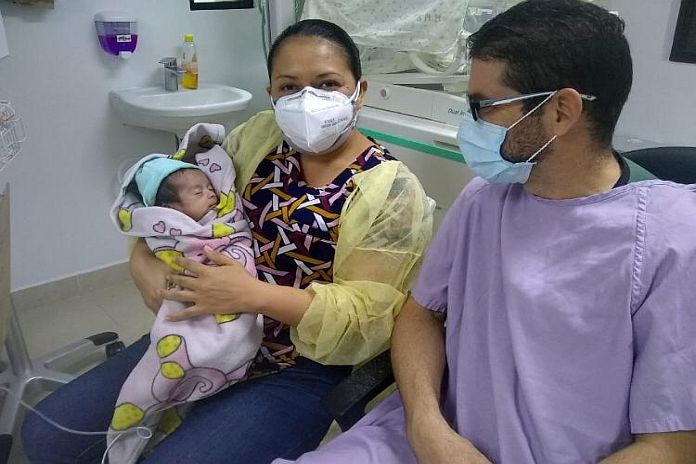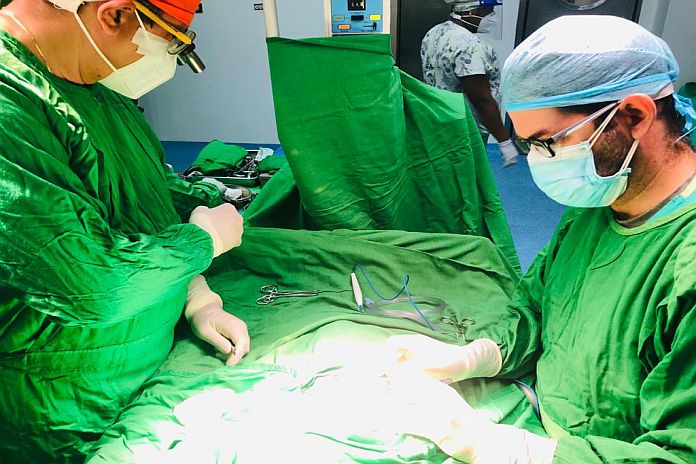By Peter Lansiquot
BELIZE, Belmopan – Belize, a small Caribbean country and the only member of CARICOM geographically located in Central America, has just taken an important step in the practice of peadiatric medicine, when a group of local specialists and nurses and the Cuban Medical Brigade (this year marks 30 years of the Cuban Medical Brigade in the country) this week carried out the first operation to correct esophageal atresia in a newborn, an intervention that culminated successfully.
Esophageal atresia is a birth defect in which part of the baby’s esophagus (the tube that connects the mouth to the stomach) does not develop properly. In babies with this anomaly, the esophagus has two segments disconnected from each other so it cannot pass food into the stomach, causing serious disorders including breathing difficulties, which can compromise the life of the newborn.

Dr Mauro Castelló, Pediatric Surgeon and member of the Cuban Medical Brigade who led the team that carried out this procedure, stated that correcting esophageal atresia in pediatric surgery is considered the epitome of the specialty due to the level of meticulousness required to work through the esophagus and trachea, very close to the heart and lungs of the newborn.
The Cuban specialist, with more than a decade of experience in his Camaguey Brigade, also commented that due to the possible consequences for the patient’s life, the correction should be made as soon as possible after the baby is born.
This result, explained Dr Castillo, was made possible due to the participants high level of skill and experience and the deep and close cooperation between Cuba and Belize in the area of health.
This affirmed Castillo, is a victory for the Third World, for public medicine and for the internationalist work of Cuba promoted by Comrade Fidel.
This article was shared on the Continental Solidarity page by Lily Zamora of ICAP (Cuban Popular Solidarity Institute), and translated by Peter Lansiquot.





